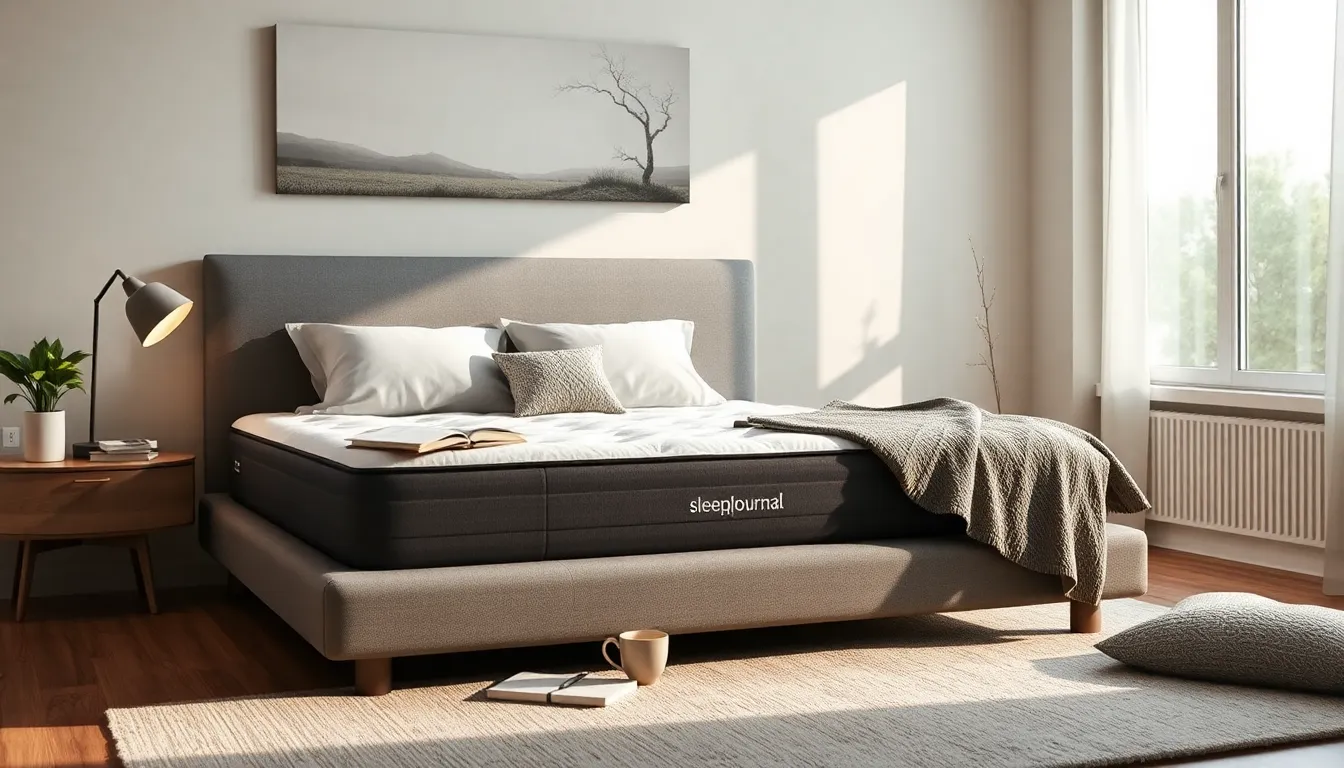Imagine a world where your pillow is as fluffy as a cloud and your dreams come true with every snooze. Welcome to the concept of sleeping high. This isn’t just about lofty aspirations: it’s about enhancing the quality of your rest. In this text, we’ll dive deep into the wonders of sleeping at altitude, why it’s trending, and how you can elevate your sleep game without needing a mountain lodge. Buckle up: your best sleep yet is just a few paragraphs away.
Table of Contents
ToggleUnderstanding Sleep and Its Importance

Sleep is not just a necessary evil: it’s a vital process for overall health. During those precious hours, the body repairs itself, consolidates memories, and flushes out toxins. Experts recommend that adults aim for seven to nine hours of quality sleep per night. Even though this, many find themselves battling insomnia or restlessness, attributing it to stress, lifestyle, or simply the wrong mattress. Sleep is crucial for physical wellbeing as much as it is for emotional resilience. Simply put, without good sleep, functioning to the best of one’s ability becomes an uphill battle.
The Concept of Sleeping High
The idea of sleeping high typically refers to getting rest at higher altitudes, such as in the mountains or even in specially designed sleeping pods. But what’s the appeal?
Benefits of Sleeping High
Being above sea level does more than just give you a scenic view. Studies suggest that sleeping in elevated places can result in deeper, more restorative sleep. The change in atmospheric pressure can lead to a more efficient oxygen exchange, eventually refreshing your body. Imagine waking up feeling as though you’ve just undergone a month-long spa retreat.
Improved Air Quality
In many cases, higher altitudes provide cleaner air. Lower pollution levels combined with fresh mountain breezes help to purify your environment. Less gravity means fewer allergens floating around as well, creating a sneezing-free zone conducive to peaceful slumber.
Enhanced Relaxation and Comfort
Let’s be honest: there is something undeniably relaxing about being surrounded by nature. The serene landscape, combined with the cooler temperatures, encourages restful sleep. It’s like having a built-in tranquility booster that makes drifting off to dreamland easier than ever.
Potential Health Advantages
Sleeping high doesn’t just feel good: it may also provide some surprisingly practical health advantages.
Tips for Achieving a High Sleeping Environment
To maximize the benefits of sleeping high, start with the right environment. Ensure your sleeping area is well-ventilated and free from distractions. Darkness helps promote melatonin production, so blackout curtains might be a good idea.
Choosing the Right Location
Whether it’s a mountainside cabin or an elevated tent site, your choice of location matters. High-altitude spots away from urban centers often have lower noise levels and cleaner air, both of which contribute to better sleep. Seek out places where you can hear the soft sounds of nature, like a gentle stream or even the rustling leaves.
Creating the Perfect Sleep Setup
Think about your mattress choice and bedding: even a high elevation can be uncomfortable if you’re not prepared. An inflatable mattress, coupled with a quality sleeping bag, can mimic that cloud-like comfort. Don’t forget your home-like touches: travel pillows or familiar blankets can ease the transition.
Best Practices for High Sleeping
Just as there are dos and don’ts in everyday life, sleeping high comes with its own set of best practices.
Adjusting to High Altitudes
Your body may need time to acclimate when switching to a higher altitude. Symptoms of altitude sickness can include headaches, nausea, or dizziness. It’s best to ease into elevation by spending a few days at a moderate altitude before going even higher. Always remember: hydration is your best friend here.
Ensuring Safety and Comfort
Safety should never take a backseat. Enlist a friend if you’re heading to more remote areas and make sure someone knows your whereabouts. It’s wise to carry a first-aid kit, and check the weather beforehand. Remember, comfort also includes psychological comfort, familiar items can make you feel at home and allow for maximum relaxation while you sleep.




